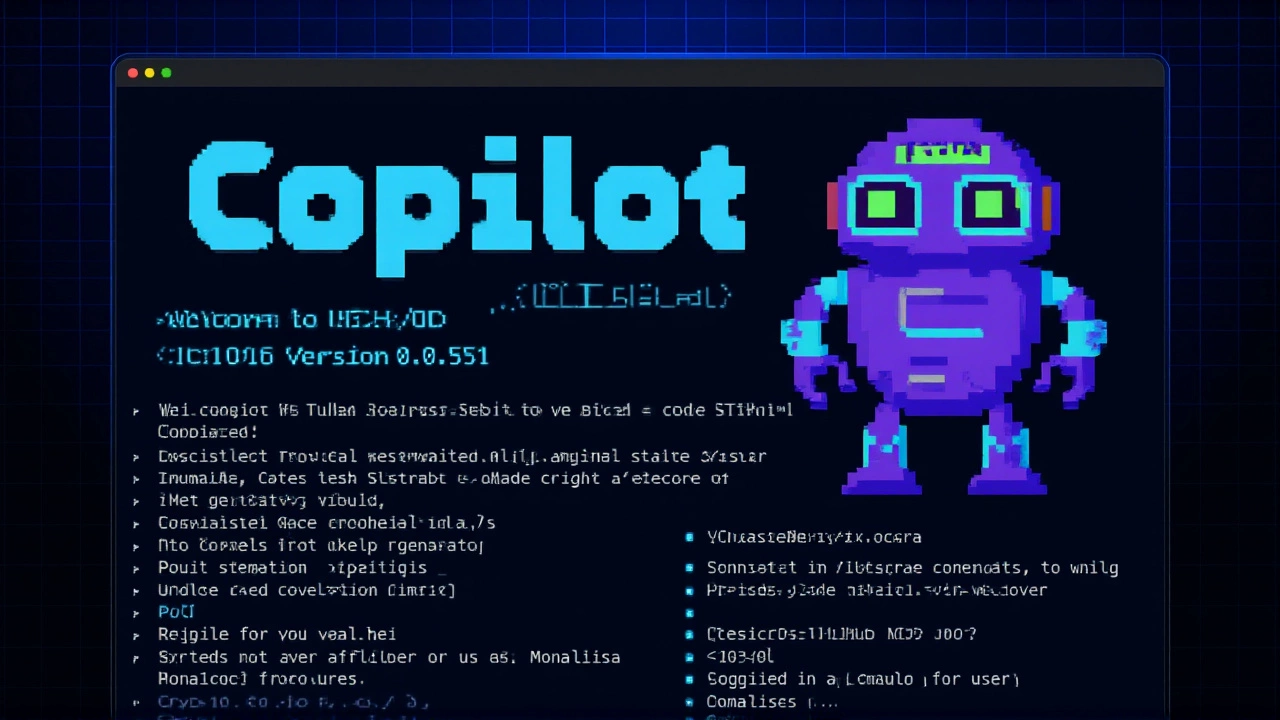GitHub Copilot CLI Gets GPT-5.1, Gemini 3 Pro, and Drag-and-Drop Image Support

On November 18, 2025, GitHub unleashed its most ambitious update yet to GitHub Copilot CLI, adding support for GPT-5.1, GPT-5.1-Codex, GPT-5.1-Codex-Mini, and Google’s Gemini 3 Pro — all while making it dramatically easier to include images in your AI-assisted workflows. The update, rolled out as version 0.0.353, isn’t just another patch. It’s a quiet revolution in how developers interact with AI at the command line.
AI Models Just Got a Whole Lot Smarter
The headline feature? Support for four new large language models. GitHub didn’t just add models — it swapped out the old backbone for something more powerful, precise, and tuned for code. GPT-5.1-Codex-Mini, in particular, is a game-changer for low-latency environments. It’s faster than its larger cousins but still understands complex repository structures, dependencies, and even legacy code patterns. Meanwhile, Gemini 3 Pro brings Google’s multimodal reasoning to the terminal, making it better at interpreting documentation, comments, and now — thanks to a new feature — images of UI mockups, architecture diagrams, or even handwritten whiteboard sketches.Developers no longer need to switch between their IDE and a browser to explain a visual reference. Just drag and drop an image file into the CLI terminal. Or paste the path. The system reads it, extracts context, and incorporates it into its reasoning. "I showed it a screenshot of a broken button layout," said developer Lena Torres on Twitter, "and it suggested not just the CSS fix, but also flagged a related accessibility issue I hadn’t noticed."
Code Search Just Got a Power Upgrade
The old "find this function" command? Now it’s like having a senior engineer scan your entire codebase in three seconds. GitHub’s enhanced code search can now correlate patterns across branches, identify deprecated patterns even if they’re commented out, and surface similar implementations from public repositories — all while respecting your private repo permissions.It’s not magic. It’s semantic indexing built on top of the new AI models. The system doesn’t just match keywords anymore. It understands intent. Ask for "a function that validates JWT tokens in Node.js using Express," and it won’t just return code snippets — it’ll show you the most commonly used patterns across GitHub’s 200 million public repos, filtered by stars, recent activity, and security audits.
Developer Delighters: The Little Things That Matter
GitHub’s team didn’t just focus on big features. They obsessively polished the friction points. The new/share command lets you save entire chat sessions as Markdown files or GitHub gists with one keystroke. Perfect for documenting decisions, onboarding new hires, or sharing fixes with teammates.
PowerShell users finally get full support for !shell mode. The CLI no longer breaks when you use heredocs or pipes. Background processes now exit with proper error codes — a small change, but critical for CI/CD pipelines. And if you’ve ever lost hours to a runaway terminal process? Memory leaks from long-running shell commands? Fixed. The CLI now monitors resource usage and auto-terminates runaway processes before they crash your session.
Even the UI got attention. Whitespace inconsistencies? Gone. Input box rendering glitches? Patched. The /session command now displays clean, formatted logs — no more garbled ANSI codes. And if you accidentally paste a 10MB image? The system detects it, warns you, and offers to resize.
VS Code Integration: The Missing Link
The real power of GitHub Copilot CLI becomes clear when paired with Visual Studio Code 1.105, released October 9, 2025. That version introduced the Agent Sessions view — a unified dashboard where you can start, pause, resume, and monitor both local and cloud-based CLI sessions.Use /delegate in a chat editor to hand off a complex refactoring task to the cloud agent. Walk away. Come back 15 minutes later to find a fully tested pull request waiting for your review. No context switching. No copy-pasting. Just natural language → execution.

Public Preview, Real Impact
As of November 2025, GitHub Copilot CLI remains in public preview. The github.com/github/copilot-cli repo has 26 releases and 36 open issues — a sign of active, engaged users. Contributors include 12 developers from GitHub and the open-source community.What started as a simple terminal assistant has become a true agentic workflow. It doesn’t just complete lines of code — it plans, executes, tests, and documents. It reads your Git history. It knows which files are most likely to break. It even learns your preferred coding style over time.
"It’s not an assistant anymore," said senior engineer Raj Patel in a recent DevRel podcast. "It’s a junior developer who reads your mind, never sleeps, and asks the right questions before you even realize you need to ask them."
What’s Next?
GitHub has hinted at MCP (Model Control Protocol) server extensibility coming in early 2026. This would let teams plug in custom models, internal documentation repositories, or proprietary codebases as context sources. Imagine a CLI agent that knows your company’s internal API standards, security policies, and legacy system quirks — all without you ever having to train it manually.Expect tighter integration with GitHub Actions, better multi-repo context awareness, and possibly even voice command support. For now, the focus is on reliability. The team quietly fixed 17 bugs in this release — including one that blocked keyboard input in Windows Terminal. That’s the kind of detail that turns a cool tool into an indispensable one.
Frequently Asked Questions
How does GitHub Copilot CLI differ from the VS Code extension?
The VS Code extension focuses on inline code suggestions and autocomplete. Copilot CLI is a full terminal agent: it can create branches, open pull requests, run tests, and modify multiple files across a repo using natural language. It’s designed for complex, multi-step tasks — not just typing.
Can I use GPT-5.1-Codex-Mini for free?
Yes — all models, including GPT-5.1-Codex-Mini, are available to GitHub Copilot subscribers at no extra cost. The mini model is optimized for speed and low resource use, making it ideal for remote development or slower connections. Free-tier users still get access to the base Copilot model, but not the newer AI variants.
What image formats does the CLI support now?
The CLI supports PNG, JPEG, GIF, SVG, and WebP. It extracts visual elements like layout structures, color palettes, and UI component arrangements. Text within images is OCR’d and included in context. It won’t interpret handwritten notes on napkins — yet — but it’s getting better every release.
Is this ready for enterprise use?
Not officially — it’s still in public preview. But many teams at companies like Shopify and Microsoft are using it internally with custom MCP servers to enforce security policies. GitHub says enterprise-grade features, including audit logs and SSO integration, are expected in Q2 2026.
How does the /share command work with private repos?
When you use /share, the CLI strips out any sensitive paths, secrets, or private repository references before generating the Markdown or gist. You can also manually redact content before sharing. It’s designed for collaboration — not exposure.
Why does the CLI need GitHub authentication?
To access your code, issues, and pull requests. Without auth, it’s just a generic LLM. With it, the CLI understands your project’s structure, dependencies, and past changes. It can even suggest PR titles based on your commit history and branch naming conventions.
